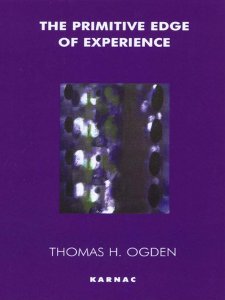
“I have two protective spirits”, a co-worker told us over lunch.
We had been discussing religion and spirituality, a topic that arose since the Chinese restaurant where we were having lunch was right across the street from an impressive religious building. Next to our table was a little altar to Chinese deities, burnt-down joss sticks in front of a heavenly court made of porcelain.
My co-worker’s family had emigrated from a Southeast Asian country a generation or two ago. They still have family ties to the old place, and once in a while family reunions take place, presided over by the most senior grandmother.
During one of those stays, years ago, he told us, the family insisted on calling in a local wise man to conduct a ceremony which dedicated two protective spirits to watch over him. He joked about the fact that he had two such guardians, and speculated that this might be due to his living in a far-off place on another continent, so twice the protection would be required. Or maybe because he was always making mischief.
Our lunch arrived at this point in the discussion, fragrant plates of sauteed food and bowls of rice. Chopsticks and spoons were sorted out, orders for additional drinks had to be placed.
After a mouthful of tofu with Chinese mushrooms, I remarked how this ceremony resembles the child-blessing sacraments of other religions. He agreed that it was similar, and we explored the social pressure surrounding this type of religious event. My wife and IÂ never had our child baptized, and received a certain amount of disapproval for it from our relatives, I told him, even though they were not religious at all.
Others on the table joined in to the discussion, which then diverged over such topics as nominally religious political parties like the Christian Democrats or its counterparts in Turkey, church tax (an issue in this corner of Europe), and cults like the one in the large modern building across the street.

Finally we got back to the actual choreography of the guardian spirit ceremony our colleague had been subject to all those years ago. Interest in the exotic aspects of Southeast Asian folk religion had increased during our meal, he was asked for more details, and he indulged us in good-natured fashion.
“Now this year, the wise man wants to do another ceremony, because this thing only lasts so long”, he told us.
Understanding nods around the table. Everyone was relaxed and satisfied after a nice meal. The earth-bound spirituality of a far-off people with their ancient traditions had given the afterglow of the Chinese food a pleasant romantic tinge.
“Only now he says it will cost the equivalent of three thousand Euros. And that’s at the current exchange rate, not some kind of wage equivalent.”
This marred the atmosphere a bit. People suggested to tell the holy man to get lost.
“Yes, that’s what I’d do myself”, he grinned. “Only, if we do that, the protection will go away, you see? People back there take this kind of thing seriously. They all paid their fees to the wise man, so if we don’t, then that makes them look stupid, and there is also the superstitious aspect.”
Protection Racket

On my way back to the office, I had black thoughts about supernatural protection rackets, and riots in heaven, about tearing down spiritual hierarchies, smashing celestial spheres, and watching the aethyrs burn as we dance on the debris and rubble of an overthrown cosmic order.
Any magician will have done banishing rituals and maybe contacted some kind of guardian spirit. Protective servitors are also popular. But are they effective against social pressures and the transcendental insurance salesmen offering protection against fragile things breaking because of clumsy people in a bad mood?
The supernatural protection racket situation hinges upon several parameters:
- there are “bad guys” in other realms. In this paradigm, the protective spirits are getting something profitable to them out of the arrangement. Their motives diverge from the pure, wholesome image conveyed by the term “guardian spirit”.
- the social control mechanisms which fail to prevent mobsters from doing their thing in this world equally fail to do keep the mobster spirits under control in other realms. The archontic police forces may be impotent or corrupt.
- in this realm, social pressure accumulates at the bottom of the pyramid. The rich and powerful take advantage of social norms and expectations, harnessing them for their own purposes: Delegate influence and responsibility to the man with the beard or the suit. On top of this the would-be guardian spirits also hook into these convenient patterns of behavior: Blindly believe in what you are told, submit to spiritual authority.
Project A
There have always – or at least as far back as we have documented history, and probably before that given human nature – always been those who thought about or even attempted to implement more egalitarian modes of coexistence in human society: Mutual aid and solidarity rather than reliance on the benevolence of bullies, decentralization instead of concentration of power, direct action, and voluntary participation as opposed to hierarchies.
Let me unpack this long string of left-wing buzzwords and apply them to the subject of spiritual protection.

Mutual Aid: this amounts to a slight paradigm shift in the time-honored system of making a sacrifice which is a staple of magick both ancient and modern. Rather than viewing the sacrifice as a payment for a service provided by a spirit, sacrifice in the vein of mutual aid has the quality of a flea-market exchange: everybody and -spirit brings their goods and services along, and from this pool, everybody and -spirit can get what they need.
Decentralization: magickal systems tend to be highly structured, with tables and lists and precise prescriptions, rituals with elaborate choreography or at least rigid rules on how to improvise, grades and degrees and hierarchies of recognition… even Chaos magick has produced paradigms and institutions that emulate these to an extent. In a decentralized paradigm, small self-organized groups form networks according to their interests and needs. Information control, which is a mainstay of institutionalized power both in this realm and spiritual ones, is replaced by open access to knowledge. Of course magick without secrecy, grand titles, and the hosts of heaven and hell seems unappealing. In the specific context of guardian spirits however, these are the aspects which make the supernatural protection racket work in the first place.
Direct Action: examples are strikes, blockades, occupation, sabotage, and civil disobedience. Chaos magicians will recognize these readily, summarized in such foundational quotes as, “nothing may be true, everything may be permitted”, the basic premises of tantric practices, and the generally heterodox outlook of the chaos magick subculture.
To get back to the question of how to approach the conditions which facilitate abusive spirits to pose as guardian angels, let me boil all of this socio-spiritual analysis down to something pragmatic:
Foster mutually beneficent relations with a diverse and egalitarian group of humans and spirits. The group will have the means to protect its members. Do not pay for individual spiritual protection. Do not delegate this to cosmic institutional hierarchies.


